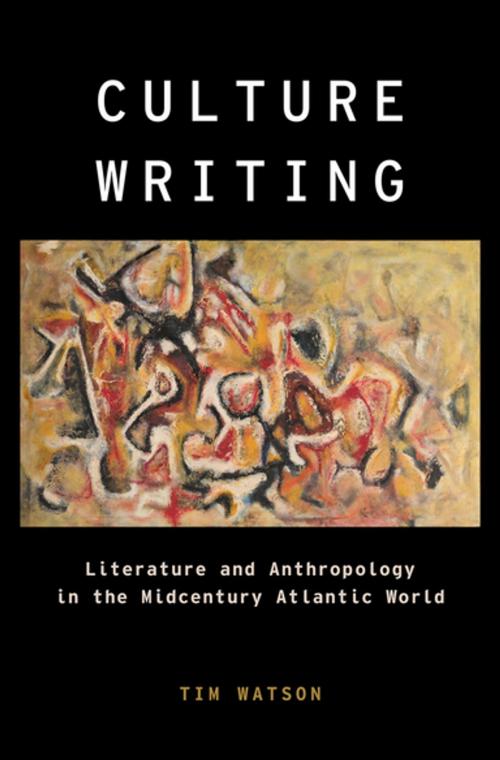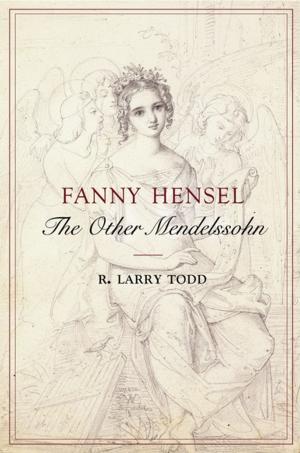Culture Writing
Literature and Anthropology in the Midcentury Atlantic World
Fiction & Literature, Literary Theory & Criticism, Theory, Nonfiction, Social & Cultural Studies, Social Science, Anthropology| Author: | Tim Watson | ISBN: | 9780190852696 |
| Publisher: | Oxford University Press | Publication: | January 19, 2018 |
| Imprint: | Oxford University Press | Language: | English |
| Author: | Tim Watson |
| ISBN: | 9780190852696 |
| Publisher: | Oxford University Press |
| Publication: | January 19, 2018 |
| Imprint: | Oxford University Press |
| Language: | English |
Focusing on the 1950s and early 1960s, Culture Writing argues that this period in Britain, the United States, France, and the Caribbean was characterized by dynamic exchanges between literary writers and anthropologists on both sides of the Atlantic. As the British and French empires collapsed and the United States rose to global power in the early Cold War, and as intellectuals from the decolonizing world challenged the cultural hegemony of the West, some anthropologists began to assess their discipline's complicity with empire and experimented with literary forms and technique. Culture Writing shows that the "literary turn" in anthropology took place earlier than has conventionally been assumed, in the 1950s rather than the 1970s and 80s. Simultaneously, some literary writers reacted to the end of the period of modernist experimentation by turning to ethnographic methods for representing the people and cultural practices of Britain, France, and the United States, bringing anthropology back home. There is analysis of literary writers who had a significant professional engagement with anthropology and brought some of its techniques and research questions into literary composition: Barbara Pym (Britain), Ursula Le Guin and Saul Bellow (United States), Édouard Glissant (Martinique), and Michel Leiris (France). On the side of ethnography, the book analyzes works by anthropologists who either explicitly or surreptitiously adopted literary forms for their writing about culture: Laura Bohannan (United States), Michel Leiris and Claude Lévi-Strauss (France), and Mary Douglas (Britain). Culture Writing concludes with an epilogue that shows how the literature-anthropology conversation continues into the postcolonial period in the work of Indian author-anthropologist Amitav Ghosh and Jamaican author-sociologist Erna Brodber.
Focusing on the 1950s and early 1960s, Culture Writing argues that this period in Britain, the United States, France, and the Caribbean was characterized by dynamic exchanges between literary writers and anthropologists on both sides of the Atlantic. As the British and French empires collapsed and the United States rose to global power in the early Cold War, and as intellectuals from the decolonizing world challenged the cultural hegemony of the West, some anthropologists began to assess their discipline's complicity with empire and experimented with literary forms and technique. Culture Writing shows that the "literary turn" in anthropology took place earlier than has conventionally been assumed, in the 1950s rather than the 1970s and 80s. Simultaneously, some literary writers reacted to the end of the period of modernist experimentation by turning to ethnographic methods for representing the people and cultural practices of Britain, France, and the United States, bringing anthropology back home. There is analysis of literary writers who had a significant professional engagement with anthropology and brought some of its techniques and research questions into literary composition: Barbara Pym (Britain), Ursula Le Guin and Saul Bellow (United States), Édouard Glissant (Martinique), and Michel Leiris (France). On the side of ethnography, the book analyzes works by anthropologists who either explicitly or surreptitiously adopted literary forms for their writing about culture: Laura Bohannan (United States), Michel Leiris and Claude Lévi-Strauss (France), and Mary Douglas (Britain). Culture Writing concludes with an epilogue that shows how the literature-anthropology conversation continues into the postcolonial period in the work of Indian author-anthropologist Amitav Ghosh and Jamaican author-sociologist Erna Brodber.















